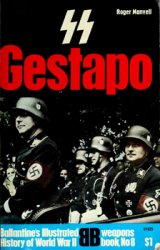Toward the end of the Sino-Japanese War, the political situation in China was chaotic. GMD-CCP relations were enmeshed with Sino-American and Sino-Soviet relations and with the conflicts between the United States and the USSR over their China policies. Two important international agreements influenced
China’s internal political situation. One was the secret Yalta agreement of February 1945 reached by the American and Soviet leaderships; the other was the Sino-Soviet Treaty of Friendship signed by the Soviet Union and the GMD-controlled Republic of China in August 1945. A history of diplomatic maneu-verings among the United States, the USSR, and the GMD government lay behind these two agreements, and through them the United States and the USSR attempted to coordinate their China policies. Meanwhile, both superpowers attempted to make acceptable to each other their arrangements for China’s political development after World War II.
In 1941, once war had broken out in the Pacific, US leaders had been temporarily convinced that, were China to emerge as a pro-American power in East Asia, this would not only help to defeat Japan, but also serve as a shield to contain the USSR and limit the revolutionary trend in the region.311 The problem was that the United States conflated the success of its China policies with the maintenance of Jiang Jieshi’s (Chiang Kai-shek’s) leadership, and Jiang was facing a series of grave domestic crises by the end of the war. The press in the Allied countries also frequently criticized the Nationalist government’s financial corruption and military shortcomings. Further complicating the matter for the United States, since the summer of 1943, were the struggles between the GMD and the CCP, wherein new military conflicts loomed.
The United States did not want a large-scale Chinese civil war for a number of reasons. Washington believed that Chinese military forces should concentrate on fighting the war against Japan, not least since the Soviets had yet to be persuaded to commit troops in that war. Facing a worsening of the political and military situation in China, the Franklin D. Roosevelt administration searched for ways to maintain Jiang Jieshi’s position and, by doing so, to avoid a civil war. This objective later led to direct and active American intervention in the GMD-CCP conflicts through the missions of Generals Patrick Hurley and George C. Marshall to broker peace in China.
Iosif Stalin seems to have anticipated several potential problems once the USSR entered the war against Japan. In his estimation, what mattered most for Soviet policy in postwar East Asia was balancing Sino-Soviet and Soviet-US relations with a mind to achieving and protecting Soviet strategic interests in the Middle Kingdom, and he was much less interested than Washington in resolving China’s internal problems. Stalin thought that the United States and Britain would not allow the CCP to gain absolute political power, and thus felt that the USSR could not support any radical ambitions held by the Chinese Communists. Moreover, in Stalin’s mind, it was uncertain whether the CCP conformed to Soviet ideological standards, and the GMD seemed plainly to be in a more powerful position than the Communists. By all accounts, for Stalin, relations with the CCP were a lower priority than those with the United States and with Jiang Jieshi’s regime. From the summer of 1944 to some time after the war’s conclusion, Soviet leaders told almost every American representative visiting Moscow that they would support US policies in China and US efforts to mediate the GMD-CCP conflict. They also told the Nationalist government that "there could only be one government in China, led by the GMD."312
Up to the summer of 1945, the United States and the USSR attempted to coordinate their China policies based on the assumption of "peace under Jiang Jieshi," which they both believed to be a reasonable outcome. This premise set two objectives. The first was to support Jiang’s political standing in postwar China, and specifically the Nationalist government’s legitimacy and Jiang’s leadership position within that government. The second was to avoid a civil war between the GMD and the CCP.
Both the United States and the USSR enjoyed considerable influence in China, but the GMD and the CCP still played the key roles in the country’s political development. After Japan announced its surrender on August 14, 1945, the Nationalist government immediately faced the major problems of restoring its rule in China, recovering control of most of east and north China - including those areas occupied by the CCP forces - and taking back Manchuria, which Soviet forces had occupied after Stalin declared war on Japan in the last days of the Japanese empire. The main difficulty for Jiang was the speed with which he had to carry out these operations: the GMD could not amass enough forces in the time available for all these tasks.
Jiang Jieshi needed - and received - American support. Yet he must also have known that the United States did not want him to use force against the CCP, and that the USSR would never accept the extermination of the Communists by the GMD. Jiang had at least to demonstrate his willingness to attempt a political settlement. On the day of the signing of the Sino-Soviet treaty in August 1945, Jiang Jieshi telegrammed the CCP chairman Mao Zedong and invited him to "please come to the war-time capital" for a GMD-CCP summit.
After the US diplomatic mission under George C. Marshall arrived in China in late December, Jiang agreed to accept US mediation and to resolve GMD-CCP conflicts through renewed political talks. His reasons for these decisions were essentially no different from those behind his earlier invitation extended to Mao to come to Chongqing. After the military confrontations in north and northeast China in mid-October, Jiang again determined that the GMD forces lacked the resources necessary to eliminate the CCP militarily. The next steps that Jiang took showed that he was temporarily retreating from using force. He limited military activities, resumed GMD-CCP negotiations, and reduced Sino-Soviet tension.
Since the outbreak of war against Japan in the summer of 1937, the CCP's approach to relations with the GMD had been characterized by efforts to avoid a large-scale civil war and to use political means to push the GMD toward a settlement. So long as the USSR remained allied with the United States and Britain, CCP leaders believed that they could not carry out a radical revolution, but Mao also felt reassured that the GMD would not try to eradicate the CCP by force.313 This situation benefited the CCP, as it occupied a weaker position at the time.
In light of the Nationalist government’s military defeats against Japan and the failed negotiations mediated by Patrick Hurley in late 1944 and early 1945, CCP leaders had for a while contemplated adopting more radical policies. However, Mao’s speech at an internal meeting of the Seventh CCP Congress in the spring of 1945 revealed that CCP leaders had many alternative visions regarding the specific form of a so-called coalition government. One of them was very close to the basic US plan: that is, establishing a government headed by Jiang with the participation of other parties, including the CCP.314
CCP leaders had been convinced before the end of the war that the USSR would not assist them as it had the East European countries.315 They paid more attention to the possibility of armed US intervention than to Soviet policies. Mao certainly felt disgruntled by the Soviet leaders’ demand that he go to Chongqing for negotiations, but what caused his gravest concerns was more likely Stalin’s pessimistic prediction of China’s impending civil war, that "the Chinese nation faced the risk of destruction."316 Not only was Stalin warning the CCP Central Committee, but the Soviet embassy in China and the Soviet army in Manchuria all believed that it was very likely the United States would intervene militarily in China in case of a civil war.
Influenced by Soviet thinking, Mao believed at the time that "the United States would necessarily intervene" if the CCP were to occupy big cities such as Nanjing and Shanghai. Clearly, this belief was one of the main reasons why the CCP Central Committee decided to resume negotiations with the GMD; this view also determined the party’s basic position that it should participate in a government headed by Jiang Jieshi. Mao described the arrangement as "dictatorship plus some democracy."317
Soon after the Chongqing negotiations began and even after the signing of an agreement on October io, the GMD and the CCP began major military operations in north and northeast China. Yet, the CCP Central Committee still maintained that the fighting was temporary, and that the following six months would be a transitional period from civil war to peace.318 After President Harry S. Truman summed up his policy toward China on December i5, and after the Council of Foreign Ministers Moscow Conference and the start of the Marshall mission, the CCP decided to resume negotiations with the GMD. The Communist leadership thought that the political agreement brokered by Marshall was acceptable, and even that the plan to integrate the two armies was quite commendable. They believed that "a new period of peace and democracy [had] begun."319
Judging from the outcome of its participation in the negotiations, the CCP’s political plan reflected the prognostications of the Seventh Congress. The CCP leaders were notably consistent in their thinking regarding the issues at hand. For some time after the Sino-Japanese War, they were still convinced that "the central problem in the world now was the struggle between the United States and the USSR, which, reflected in China, was the struggle between Jiang Jieshi and the CCP."320 Since both the United States and the USSR deemed the Nationalist government to be legitimate, and since they demanded the peaceful resolution of GMD-CCP conflicts, as the weaker side, the CCP had to compromise.
The GMD and the CCP conducted a series of negotiations from the end of the Sino-Japanese War to June 1946. Regardless of their reasoning, they at least tried to look for political solutions and to achieve their goals through discussion rather than civil war. This peace held as long as both Chinese parties believed that some form of US-Soviet cooperation would survive. In these circumstances, neither the GMD nor the CCP had the capability to eliminate the other by force, each therefore had to accept a political solution mandated by the two superpowers.




 World History
World History









